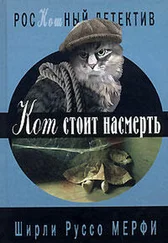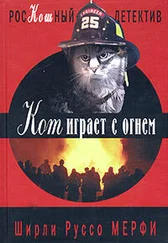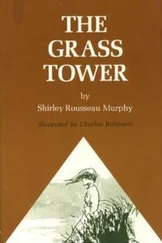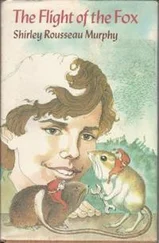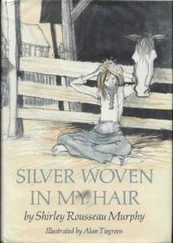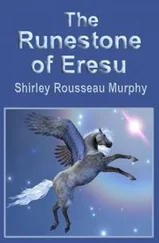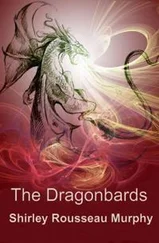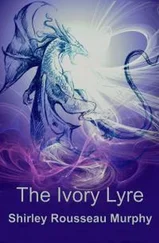“Even the days when Zandour ruled all the coast clear to Sangur was a simple time compared to what lies ahead. Though those rulers were strong indeed, with the cult they brought upon Ere.” She looked down at Ram. The baby was staring at her intently, as if the sound of her voice stirred him.
“Well, the volcanoes helped end that rule. But now the Seers grow stronger again and begin to band together. All but the Seer of Pelli. He does not band with anyone. He is close in spirit to the old Zandourian rulers—he would take the coast if he could, as Zandour once did. And those Seers who are of goodness will continue to be driven out or killed.” She took the babe from Tayba then. “But this child—mind my words, young woman. This baby will one day help to bring together those Seers who cling to the good. He will, if no evil defeats him, bring a force of great wonder back into Ere, a force that will aid all men of goodness.” She stared at Tayba coldly. “Who am I? I am no one. I am one who cares.” Then she said, as if reluctant to speak of it, “I am of Herebian blood and also of the blood of Seers; the blood of the wild, raiding Herebian tribes that would have raped and murdered everyone in Ere if they could have managed it—and the blood of the Cherban Seers, some of whom hold great good and some of whom lust after evil as surely as the Herebian ever did. Perhaps I feel, because of my mixed blood, a need to see a stop to the evils, a need to help against the darkness.”
Tayba finished her meal in silence and accepted the baby from Gredillon. Too many thoughts crowded her mind. She settled Ram beside her for sleep. This tiny newborn thing—how could Gredillon speak of his changing all of Ere? That was ridiculous. The woman was quite mad. He was only a baby.
But Ram grew into a handsome, sturdy boy, healthy as a young animal, and when he was of an age to learn, Gredillon taught him his letters. Then she taught him the ancient runes of the gods that few men of Ere could decipher. She taught him the myths of Zandour and Aybil and of the coastal countries, and of Carriol and the high desert tribes. She bade Tayba sit at the lessons, though she was an unwilling, fidgeting student who gazed off toward Zandour and thought unruly thoughts. Ramad listened well and was embarrassed by his mother’s inattention, and by the sense of her thoughts that he caught and did not understand.
In time, Gredillon taught young Ram the skills to roam out of his mind into the minds of others, the minds of men down in Zandour, simple men at first whose thoughts were easiest to enter. Ram didn’t like that much. He found the minds of men cruel and unhappy. And the Seeing was never constant, often it would not come at all as was the nature of the art, so that Ram might spend days reaching out in vain. A small boy’s patience, even a small Seer’s patience, has its limits. But Gredillon’s own patience never flagged. She nurtured Ram’s Seer’s skills and built on them. She made him know that his salvation, his very life, lay only in the talents he could master.
She taught him the herbs and the simple potions, too, and taught these to Tayba and made her pay attention. Tayba and her child learned to find and gather and dry the herbs of Scar Mountain, and to use them.
Then Gredillon taught them the sword. She drilled them in mock battles until both Tayba and Ram were near exhaustion; and this practice held Tayba’s attention, pleased her. Then at last Gredillon began to teach Ram the use of the wolf bell, though there was little need to teach him. The boy was drawn to the bell, and quickly he became skilled with it. There were no wolves on Scar Mountain in those days, but soon enough Ram could call down the foxes and jackals. The foxes came slipping close to rub against his legs and eat from his hand, coy and appealing, with pink-tongued smiles that made Ram laugh. But the jackals were sly and ugly. Big, rangy animals, gaunt and slit-eyed, that hung their heads and looked up at Ram menacingly. They frightened Tayba. She went tense while Ram held them with the bell’s power, and when he loosed them they fled and did not hang back to clown as the foxes would.
At these times Ram seemed not a child. Scarce six years of life he had, then seven, but always when he brought the wild animals down to him, the man Ram would one day be shone out, calm and sure. His small boy’s face was filled, then, with light, with a strong intensity that spoke of power—and drew only unease from Tayba. Once when the jackals had fled, she stared after their slinking shadows and said crossly, “Why do you want to call them? They—they make me so uneasy.”
“They are brother to the wolf, Mamen. One day I will call wolves.” He turned away from her to stare out over the mountain, and she pretended she did not see the hurt in his face, see his disappointment in her.
He looked back at last. “One day,” he said, unsmiling, “I think the wolves will save you.”
“ How could wolves save me?” But at his words she hastily pushed something away that rose far back in her mind, a picture of wolves leaping, a wild unbidden thought that she did not want, that could not be. There was nothing in her, nothing, that could call forth a vision; she had not the blood for that.
“I don’t know how they will save you, Mamen. But it comes into my mind that one day they will. It is the same as the visions of the gods. I See, but I don’t understand—yet. One day I will understand.”
She looked at him, her hand shaking. “Does—does Gredillon know you have visions of gods?”
“She knows. I see the winged gods. . . .” His eyes were alight now, eager. “They only seem half-horse and half-man, they are nothing like either. They are so beautiful!” The exalted expression in Ram’s dark eyes made her catch her breath. She sat down beside him on the boulder and touched his red curling hair and shivered. She wished—but what good did it do to wish? He was as he was. She could not change that
“I see the gods in the old cities. In Opensa and Carriol and Owdneet,” he said with wonder. “I see how the cities were, the mountains carved with bowers and caves. And, Mamen, men dwelled there with the gods. Seers like me, Seers. . . .” He stared up at the sky. She watched him and knew, bitterly, that he belonged to this more than to her. To this wildness, to the Seeing of gods. He stared past her, puzzling. “The gods dwell in one path of air, and the Seers in another. But they dwell together. I do not fully understand—yet It is like the fish Marga in the sea and the bird Otran in the air. They speak to each other, but each lives in its own world. Only—it is the same world.” He frowned, trying to work it out, looked possessed by this. Why was it so important to him? She wished they had never come to Gredillon, never seen the wolf bell. That bell—and Gredillon’s teachings—led him into worlds she could not touch, made him dream precarious dreams. He would be better off without it, might even be a normal boy and forget he was born a Seer.
He put his arm around her waist, leaned close against her, was so tender suddenly and sweet. She loved the little boy smell of him, his smooth bright hair—but wished it were dark instead of red. She held him close, loving him and wishing to change him.
He took her face in his small hands, was so close his dark eyes were the whole world. “I would not be better off,” he said, reading her thoughts so easily. “I am eight years old, Mamen. If we had not come here, I would be. . . . Without Gredillon to show me, I would not know what is inside of me, or what to do about it.” His whole being had grown fiercely intense. “I do not ask you to change, Mamen. I do not ask you to keep yourself from the trips you make at night down the mountain when you—when you are unhappy. When you think I am sleeping and cannot know.”
Читать дальше
![Ширли Мерфи The Shattered Stone [calibre] обложка книги](/books/436059/shirli-merfi-the-shattered-stone-calibre-cover.webp)
